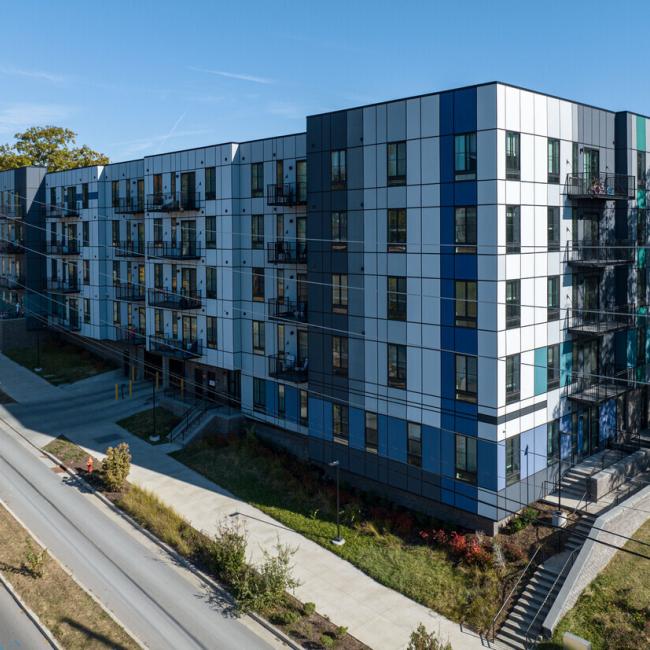Project Summary
The project team will leverage Nashville, Tennessee’s unique mixed-income housing initiative, Envision Cayce, in the Cayce neighborhood to conduct a rigorous, equitable evaluation of anti-displacement housing redevelopment on social cohesion and health outcomes of Cayce families with low incomes. While other initiatives rely on "right of first refusal" return, the anti-displacement approach allows residents to stay in the community during redevelopment. The team’s goals are to deconcentrate poverty, reduce racial segregation in housing, and increase the well-being of the Cayce's predominantly Black population.
Research Questions/Aims
- How does redevelopment affect residents’ perceptions of social cohesion, connectedness, and neighborhood norms following relocation to new housing units?
- What are the impacts of the anti-displacement redevelopment on the physical health, mental health, and health-related behaviors of low-income residents?
- How do social cohesion and connectedness moderate the relationship between redevelopment and health outcomes?
Actionability
- Inform policymakers in other cities on the effects of anti-displacement housing redevelopment and revitalization.
Racial Equity Implications
Prior to Envision Cayce, approximately 80% of neighborhood residents were Black and all had household incomes below 80% of the federal poverty level. Cayce has become more residentially segregated and isolated over time, and the surrounding community in east Nashville has grown Whiter and wealthier due to gentrification pressure. The mixed-income nature of Envision Cayce is intended to reduce residential segregation and integrate Cayce literally and figuratively with the rest of Nashville, addressing a key source of structural racism. From the Envision Cayce, the project team is centering public housing residents in the research process, building the evidence base for the effects of anti-displacement housing redevelopment on health, and disseminating findings to policymakers in hopes to advance racial equity.
Outcomes
Health Outcomes: physical health, mental health
Other: functional status, receipt of diagnoses and preventive services (regardless of payer), health-related behaviors, social connectedness, optimism, and self-mastery of emotions and actions
Methodology
The Cayce neighborhood’s relocation design follows a quasi-random process based on residence demolition dates. The team will use sequential, explanatory mixed methods to evaluate the relocation design and will apply a modified stepped-wedge study design to compare outcomes between residents who have moved and not yet moved to new units, incorporating secondary data analysis and resident survey data. They will obtain resident data through in-person surveys of Cayce households, administrative data from the housing authority, and Medicaid claims data. Data will be linked at the person-level to evaluate changes within individuals over time. The team will also collect qualitative data through focus groups with Cayce residents, providing context and depth in understanding for their quantitative finds.

Vanderbilt University Medical Center
Meharry Medical College